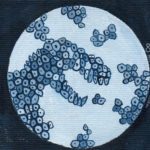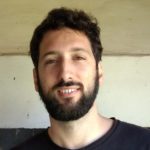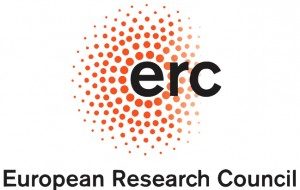Présentation
 Microbes have played fundamental roles throughout our evolution and history. These roles were not only played by pathogens, but also by the trillions of microorganisms inhabiting our body –the microbiome–, which are essential for homeostasis, physiology, and health. Recent advances in ancient DNA research have made possible to study infectious diseases and human microbiomes from ancient human populations, but this field of research is still at its early stages. For instance, it remains largely unknown which were the microbes (including pathogens) that associated with humans in the past, how they have changed over time, geographic regions and historical events, and to which extent these changes shaped our history and fate. This project will combine state-of-the-art methodologies from phylogenomics, microbiome research, and ancient DNA to bring a new perspective to the study of the human past. This approach will be implemented to investigate major aspects of the history of the Americas, using the Southern Cone as a study-model. First, the microbes (including pathogens) and microbiomes associated with pre-contact Native American populations will be characterized. This reference dataset will be then used to evaluate the impact of the agricultural transition and the European colonization in the oral microbiomes and infectious diseases of these populations. Finally, ancient pathogen genomics will be used to reconstruct the epidemiological scenarios of well-documented post-colonial epidemics. From a technical point of view, this project will also contribute new methods and applications to the emerging field of paleometagenomics. Overall, this work will bring unprecedented evidence to long-lasting debates regarding the impact of the agricultural transition in health and the intercontinental exchange of microbes during the European colonization, add a temporal perspective to the study of human microbiomes and infectious diseases and provide a new framework to study our past.
Microbes have played fundamental roles throughout our evolution and history. These roles were not only played by pathogens, but also by the trillions of microorganisms inhabiting our body –the microbiome–, which are essential for homeostasis, physiology, and health. Recent advances in ancient DNA research have made possible to study infectious diseases and human microbiomes from ancient human populations, but this field of research is still at its early stages. For instance, it remains largely unknown which were the microbes (including pathogens) that associated with humans in the past, how they have changed over time, geographic regions and historical events, and to which extent these changes shaped our history and fate. This project will combine state-of-the-art methodologies from phylogenomics, microbiome research, and ancient DNA to bring a new perspective to the study of the human past. This approach will be implemented to investigate major aspects of the history of the Americas, using the Southern Cone as a study-model. First, the microbes (including pathogens) and microbiomes associated with pre-contact Native American populations will be characterized. This reference dataset will be then used to evaluate the impact of the agricultural transition and the European colonization in the oral microbiomes and infectious diseases of these populations. Finally, ancient pathogen genomics will be used to reconstruct the epidemiological scenarios of well-documented post-colonial epidemics. From a technical point of view, this project will also contribute new methods and applications to the emerging field of paleometagenomics. Overall, this work will bring unprecedented evidence to long-lasting debates regarding the impact of the agricultural transition in health and the intercontinental exchange of microbes during the European colonization, add a temporal perspective to the study of human microbiomes and infectious diseases and provide a new framework to study our past.








